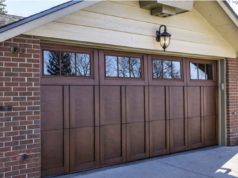Chicago Study Shows Cost Advantages of National Green Building Standard Compared to LEED for Homes
Upper Marlboro, MD – September 29, 2011 – (RealEstateRama) — A new report on green certification costs for home building and remodeling in the Chicago market says that the National Green Building Standard (NGBS) is a more flexible, affordable alternative for certifying single-family homes, townhouses, and condos than other national or regional green building certifications. The study compared the NGBS with the Chicago Green Homes (CGH) program and LEED-H, the rating system for single-family homes developed by the U.S. Green Building Council.
“In all cases, registration, verification and certification costs for LEED-H were greater than the estimated costs for the CGH and the Standard,” according to the study. “LEED-H registration, verification, and certification costs are approximately $2,776 compared to about $500 for verification and certification in the CGH or NGBS rating systems.”
“We are happy to see yet another independent study provide proof that certification to the National Green Building Standard is a credible, yet affordable path to high-performing, green residential buildings,” said Michael Luzier, president and CEO of the NAHB Research Center, which provides third-party certification to the NGBS through its National Green Building Certification Program.
“This study underscores the ‘win-win’ proposition of having a home certified to the Standard – it gives builders a way to legitimately go green and market that differentiation without busting their budgets, and it gives consumers at any price point a third-party, national certification they can rely on as verification of the green claims their builder is making.”
Released by the Home Builders Association of Greater Chicago, the “Urban Green Building Rating System Cost Comparison” was conducted by FitzGerald Associates Architects, PC. The study focuses on both the direct and indirect costs of meeting the requirements to attain certification under the three rating systems.
While previous studies have demonstrated that building homes to the National Green Building Standard is less expensive than building them to other, equally stringent rating systems, this is the first study to look at affordability as it applies to “six-flats,” the multifamily condo buildings typical of many Chicago neighborhoods.
When home builders or remodelers use the NGBS as a roadmap for building or remodeling green multifamily buildings, “the certification cost savings multiply greatly,” said Patrick Coveny, chair of the Chicago HBA’s High Performance Home Green Building Council, “so you can see the true benefit of using that rating system.”
With the release of this study, the HBA hopes the findings will convince city leaders that the NGBS should be an option, along with LEED-H and CGH, for home builders and remodelers to be able to participate in the city’s green building initiatives.
The implications can also be much wider, said Kevin Morrow, senior program manager for green building at NAHB. “While the study focused on residential structures in Chicago, the findings can be used in other urban areas to gauge the cost of meeting various residential green building programs, especially where multifamily construction predominates,” he said.
A copy of the final report is posted online. For more information on certification to the National Green Building Standard, visit www.nahbgreen.org/Certification or contact the NAHB Research Center.
ABOUT THE NAHB RESEARCH CENTER: The NAHB Research Center, located in Upper Marlboro, Md., promotes innovation in housing technology to improve the quality, durability, affordability, and environmental performance of homes and home building products. Created nearly 50 years ago as a subsidiary of the National Association of Home Builders (NAHB), the NAHB Research Center has established itself as the source for reliable, objective information and research on housing construction and development issues. Through its various testing and certification services, the Research Center seal is internationally-recognized as a mark of product quality and an assurance of product performance.
Contact:
Anne Holtz Schmick






